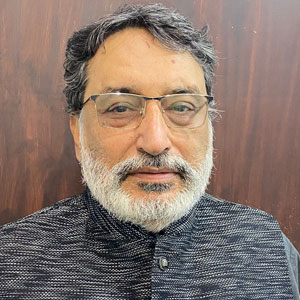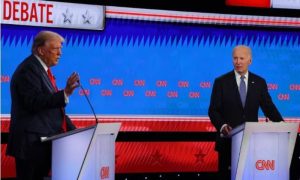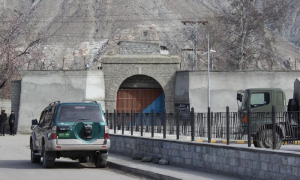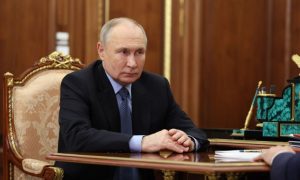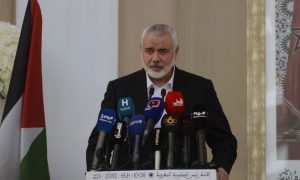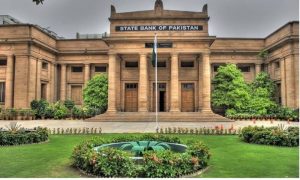The arrival of the interim setup followed by the elections process is the validation that a new government could be sensed clearly and loudly, but still, there has been no clear road map for economic policies; the only word translating from government officials has been that a financing plan has been chalked out, in a layman’s language more areas would be tapped for the borrowing and more borrowing, thus further raising sufferings of the people of this country.
For a long we have heard numerous slogans from every political big wig that our economy will soon be in the top 30 economies of the world, top-performing stock market, and top-performing currency; in totality, all these are jargons of the economic pundits. Despite hundreds of plans having been made where only some would be executed, the current state of the economy clearly shows that either government backtracked the reforms and revitalized programs or the measures adopted were not thoroughly worked out. The economy during the last fiscal year showed the second worst performance in a couple of decades, where the government claimed growth of 0.3 percent, while their latest report said that Pakistan’s economy recorded a decline by 0.5 percent. Earlier, the economy showed a decline of 0.9 percent in 2020-21 which was understandable because of the pandemic or COVID-19, which struck the world, and not a single country was spared, having a spillover impact creating a huge colossal loss.
Numbers do not match, and a worrisome issue that has been haunting and is recently a stranglehold that the nation is going through is the external debt payments. The simple formula has been adopted by the authorities to borrow loans to pay debts, and after every government passing, the ditch has been widening, and the nation’s economy has been submerged. The principal amount and debt payment is eating the basic essence of the revenue collection, giving an example that for the fiscal year 2023-24 revenue collection target is set at Rs 9400 billion, whereas debt and interest payment would be around Rs 7303 billion. About 77 percent of the resource of the country would be swept away in the shape of paying principal and interest payments, indicating that to fulfill the needs of the industries, business houses, and other areas of development, the country has to borrow and the pie of collection has been shrinking. The tax base has been quite narrow, and a fleet of white elephants or state-owned enterprises or SOEs have been the major reason for slippage. Billions of rupees are pumped in each year to keep that government entity running where the biggest example has been our national carrier, where on a quarterly basis, the losses ran beyond Rs 30 billion.
Pakistan Steel, now closed for more than eight years, was the entity having the capacity to produce 1.1 million tons. As it was closed, thousands of workers got paid without fulfilling their duties, and billions were released in pensions, all resulting in the country pushing towards a debt trap or end of the dark tunnel.
Whosoever forms the new government belonging to any political party should overhaul the system and focus on economic upbringing so that the mountain of debt must be addressed; otherwise, if on any given day, any multilateral or bilateral donors refuse to release payment in time, the country would again be on the verge of default.
Govt’s immediate priority should be to strictly adhere to the IMF conditions especially related to the FX market and interest rates. In an election year, it will be important to not resort to fiscally irresponsible behaviour.
For the new govt, the top priorities should be privatisation of loss-making SOEs and fixing the energy sector. But more importantly, a visible improvement in governance must be seen by the public to believe it. This will require all public sector appointments to be made on merit and the policy formulation must be done transparently.
Another area of top priority should be drastically reducing the size of the government.
The upcoming interim and new government of Pakistan faces an onerous task in addressing the nation’s economic woes. To navigate these challenges successfully, the government must prioritize fiscal discipline by curbing unnecessary expenditures and optimizing budget allocation.
Implementing comprehensive tax reforms to broaden the tax base (taxing agriculture and Real Estate sectors) and enforce stringent measures against tax evasion to enhance revenue generation”, said Iffat Zehra Makkani, CEO of JS Investments. Furthermore, structural reforms aimed at enhancing governance, particularly in state-owned enterprises, are paramount to achieving long-term sustainable growth.
To attain debt sustainability, the utmost importance lies in extending the maturity profile of public debt. Collaborating with international partners to cultivate the local bond market will prove beneficial in addressing Pakistan’s debt management challenges. Moreover, the mounting funding pressures underscore the necessity for a well-crafted contingency plan to address potential payment difficulties, she said.
Adopting these measures will be instrumental in alleviating the nation’s debt-related concerns and ensuring a more stable economic outlook.
Promoting export diversification through the facilitation of non-traditional sectors and access to emerging markets will serve to mitigate the vulnerabilities associated with overreliance on a limited number of industries. Such strategic measures will contribute to the development of reserve buffers and, in turn, lead to a reduction in the trade deficit. By adopting this approach, the government can bolster economic resilience and foster a more balanced and sustainable trade environment, said Iffat Mankani.
Investing in human capital through substantial allocations to education and healthcare will nurture a skilled workforce, augmenting productivity and competitiveness. Concurrently, the government should focus on infrastructure development, particularly in the transport and energy sectors, to attract foreign investments and foster industrial growth. Simultaneously, the government must address the energy crisis through a blend of renewable energy investments and measures to curb energy theft.
By diligently pursuing these specific measures, the upcoming government can lay the groundwork for a resilient and prosperous economy, steering Pakistan toward a brighter future.
“Administrative measures to bring inflation down would give more growth opportunities and also reduce interest rates said Faisal Mamsa, CEO of Tresmark. The government should be focused on reducing the fiscal deficit, including loss-making SOEs, momentum on privatization, broadening, backspace, mitigating expenses, and subsidies.
Investment in businesses should be encouraged, whereas it should be discouraged from the real estate segment whereas some allocation needs to be done to invest in innovative technologies, and training for skilled labor, enabling infrastructure, he said.
Ali Nawaz, CEO of Chase Securities, said that addressing Pakistan’s economic woes requires a comprehensive approach from the upcoming interim and new government. Firstly, they must prioritize fiscal discipline and implement structural reforms to enhance revenue collection and reduce expenditure.
Encouraging foreign direct investment and improving the ease of doing business will foster economic growth and job creation. Investments in critical sectors like energy, agriculture, and infrastructure will stimulate economic activity”, he said.
Additionally, tackling corruption and improving governance will restore investor confidence. Social safety nets should be strengthened to protect vulnerable segments of society during reforms. Collaborating with international financial institutions for support and technical assistance can also aid in stabilizing the economy and fostering sustainable development.
“The government needs to focus on three things: -Enhancing exports,-Increasing Investment and Re profiling of foreign debt. All of these firstly need a coherent policy and strong and focused execution, said Ali Farid, Chairman KTRade Securities.
Tapping global markets for new loans and investment would require proactive investor relations and image building and opening up of the markets. Privatization needs to be on the top of the agenda. Agriculture and technology are two sectors that can provide scalable export earnings, said Ali Farid.
Yousuf Saeed, head of research at Darson Securities Interim Govt. have limited powers unless amended and approved by parliament though the interim government must take the IMF policies and targets going forward, including achieving revenue targets, reducing circular debt and whatever adjustments are needed time to time to get the second tranche.
“The main responsibility will be on the shoulders of the new Govt. because their steps will set the economy’s direction that where will Pakistan move going forward. Long-term planning and its implementation is required to attract investment and foreign flows and possibly debt restructuring will also be required to improve reserves position and take out Pakistan from default ris”, said Yousuf.
Amayed Ashfaq Tola, Advocate High Court, President – Tola Associates, said that the main priorities would be to manage the current account deficit to ensure it is recorded at a sustainable level, by ensuring imports are not excessively high.
Tax reforms must be implemented in letter and spirit. The interim report of the Reforms and Resource Mobilisation Commission contains equitable tax revenue measures worth Rs 1.5 trillion. Those should be implemented in order to create equity in the tax system.
“Lower interest rates, and save debt servicing cost. Utilize the same for social development purposes, i.e., PSDP and BIS”, Amayed said.









